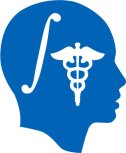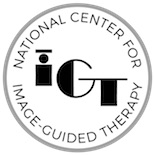Difference between revisions of "DTI Challenge 2014"
(Created page with '{| class="wikitable" | colspan="3"|Image:Miccai2014.jpg |- |Image:NAMIC.jpg |Image:Logo_nac.gif |Image:NCIGTlogo.gif |} [page under construction] == Intro…') |
|||
| Line 13: | Line 13: | ||
== Outline == | == Outline == | ||
| − | DTI tractography holds promises for mapping white matter pathways in-vivo. However, the validation of tractography results remains the major bottleneck to clinical usability and utility, since neurosurgeons and scientists face the challenge of selecting the appropriate tractography method in the absence of ground truth. This workshop aims at comparing tractography algorithms performances in the reconstruction of the corticospinal tract | + | DTI tractography holds promises for mapping white matter pathways in-vivo. However, the validation of tractography results remains the major bottleneck to clinical usability and utility, since neurosurgeons and scientists face the challenge of selecting the appropriate tractography method in the absence of ground truth. This workshop aims at comparing tractography algorithms performances in the reconstruction of the corticospinal tract in a clinical workflow of neurosurgical cases. Quantitative evaluation criteria will be based on fiber diffusion profiles, fiber geometry and distance between bundles. Clinical assessment will focus on anatomical correctness, depiction of lesion infiltration and tract displacement. |
Revision as of 01:01, 22 February 2014
Home < DTI Challenge 2014| File:Miccai2014.jpg | ||

|

|

|
[page under construction]
Introduction
The 4th Edition of the MICCAI Grand Challenge on DTI Tractography will be held on Sunday September 14, 2014, as part of the 17th International conference on Medical Image Computing and Computer Assisted Intervention (MICCAI 2014) in Boston, MA.
Outline
DTI tractography holds promises for mapping white matter pathways in-vivo. However, the validation of tractography results remains the major bottleneck to clinical usability and utility, since neurosurgeons and scientists face the challenge of selecting the appropriate tractography method in the absence of ground truth. This workshop aims at comparing tractography algorithms performances in the reconstruction of the corticospinal tract in a clinical workflow of neurosurgical cases. Quantitative evaluation criteria will be based on fiber diffusion profiles, fiber geometry and distance between bundles. Clinical assessment will focus on anatomical correctness, depiction of lesion infiltration and tract displacement.